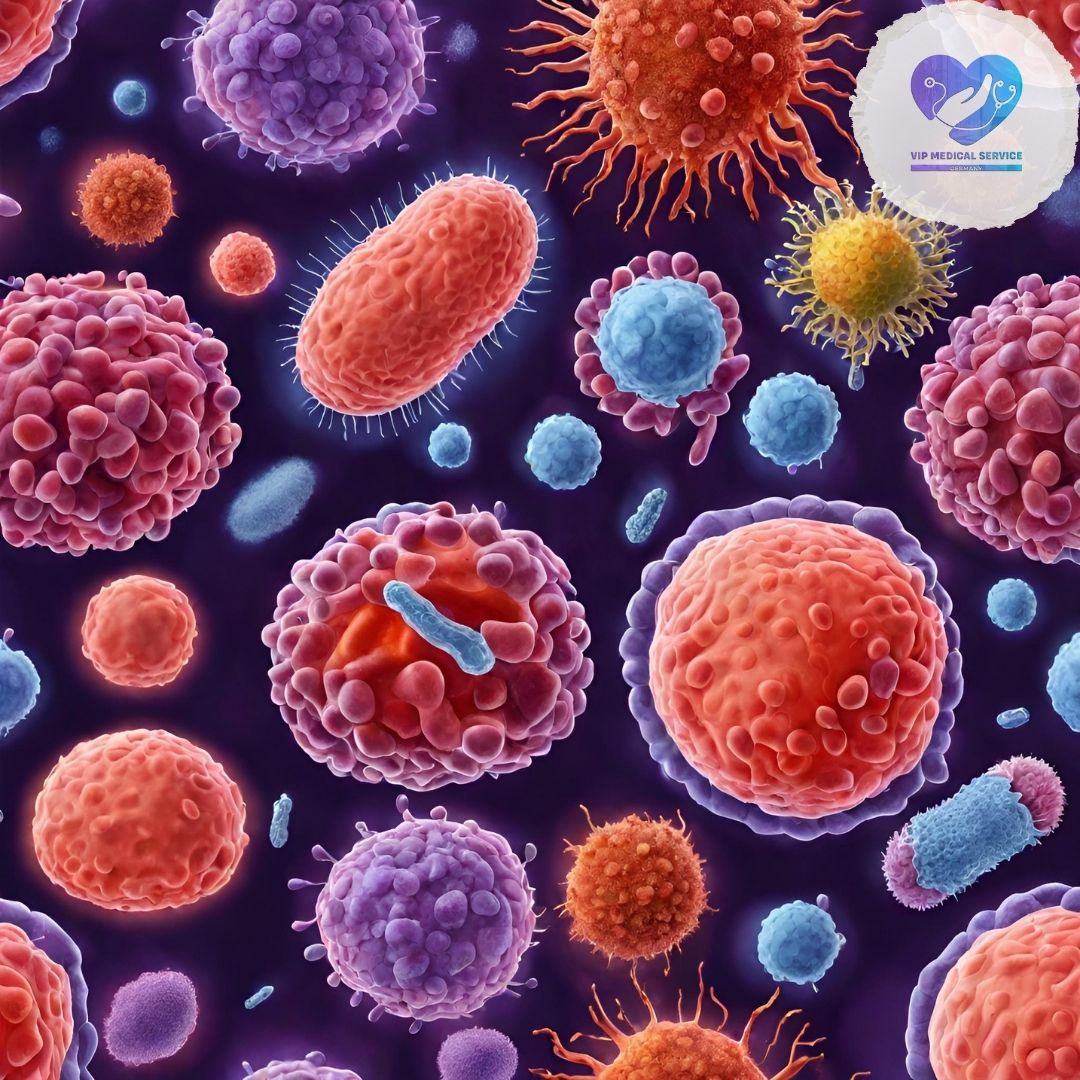Monkeypox Virus: An Emerging Public Health Concern
22 Aug, 2024Monkeypox is diagnosed based on clinical symptoms and confirmed through laboratory tests such as Polymerase Chain Reaction (PCR) to detect the virus's DNA
27 Feb, 2024 - Medical Info

Cellular therapy is one of the foremost advancements in cancer treatment in recent decades, where immune cells or genetically modified cells are utilized to target and destroy cancer cells. This approach has seen significant progress in treating various types of cancer and is considered one of the most promising treatments in the medical field.
The aim of cellular therapy is to enhance the immune system's response to fight cancer, employing gene editing techniques to bolster the immune system's ability to recognize and attack cancer cells. Cellular therapy is expected to reshape the landscape of cancer treatment and increase the chances of recovery for patients.
Cellular therapy is expected to see increased prevalence in the coming years due to its growing successes in treating a variety of cancer types. With advancements in technology and improved scientific understanding of cellular interactions, its dissemination is anticipated to expand.
Advantages of cellular therapy for cancer include:
Sustained response: Cellular therapy has the capability to achieve long-term responses, as genetically modified immune cells can remain active for extended periods, contributing to preventing cancer recurrence.
Precise targeting: Cellular therapy enables precise targeting of cancer cells without affecting adjacent healthy tissues, thereby reducing side effects.
Personalized customization: Cellular therapy can be tailored to suit each individual case, increasing treatment efficacy and reducing the risk of rejection.
Types of Cellular Therapy:
1. Chimeric Antigen Receptor T-cell Therapy (CAR-T):
This form of immunotherapy utilizes modified immune cells to combat cancer. In CAR-T therapy, T-cells are extracted from the patient's blood and genetically engineered in a laboratory to include receptors that bind to specific antigens on the surface of cancer cells. These modified cells are then reintroduced into the body to seek out and destroy cancer cells. This treatment has shown promising results in treating certain types of blood cancers such as lymphoma and leukemia.
2. Tumor-Infiltrating Lymphocyte Therapy (TILs):
TILs is a form of immunotherapy that uses immune cells derived from the patient's tumor to fight cancer. In this treatment, a portion of the tumor is removed, and the lymphocytes gathered from around or within the tumor are isolated. These cells are then activated and multiplied in the laboratory before being injected back into the body to attack cancer cells. This therapy may be effective for some solid tumors like skin, breast, and lung cancers.
3. Natural Killer (NK) Cell Therapy:
NK cell therapy is another form of immunotherapy that utilizes immune cells capable of killing cancer cells without prior stimulation. In this therapy, the number and activity of natural killer cells are enhanced in the laboratory before being reintroduced into the body to attack cancer cells. It may be effective against certain solid tumors.
4. T-cell Receptor (TCR) Therapy:
This method involves genetically engineering T-cells to recognize cancer-specific antigens present on the surface of cancer cells, enabling the immune system to target and destroy them.
5. Engineered T-cell Therapy using CRISPR/Cas9 Technology:
CRISPR/Cas9 technology allows for the modification of immune cells by targeting and editing specific genes. This technology can enhance the properties and functions of T-cells by adding, deleting, or modifying certain genes. For example, T-cells can be modified to express receptors that bind to cancer antigens, resist immune-inhibitory factors, or enhance their persistence and proliferation.
6. Mesenchymal Stem Cell Therapy (MSCs):
MSCs can be engineered to deliver anti-cancer factors directly to tumor sites or modify the tumor microenvironment to inhibit tumor growth and enhance immune responses against cancer.
7. Cytokine Therapy:
Cytokine therapy utilizes chemicals called cytokines to stimulate or suppress the activity of immune cells. Cytokines help activate immune cells and increase their ability to attack cancer cells, or they can inhibit immune cells to reduce inflammation and associated side effects.
8. Virus-Specific T-cell Therapy:
This immunotherapy employs immune cells capable of recognizing and eliminating viruses that may affect individuals with weakened immune systems after stem cell or organ transplantation.
9. Hematopoietic Stem Cell Transplantation (HSC):
HSC therapy uses stem cells derived from bone marrow, umbilical cord blood, or peripheral blood to replace damaged or lost blood cells in patients with blood disorders, cancer, infections, or immune disorders. It can be allogeneic (from a donor) or autologous (from the patient). HSC therapy may be effective in treating certain cancers, genetic diseases, and immune disorders, but it carries risks and side effects requiring long-term monitoring and support.
At present, most of these therapies are in the research and experimental stages. Generally, clinical studies indicate that the success rates of cellular therapies vary among different types of cancers and among patients. However, many studies show a positive response rate in a significant proportion of patients. For example, a phase III study of CAR-T therapy for blood cancer demonstrated a response rate of approximately 80% in patients who did not respond to traditional treatments.
Hospitals in Germany strive to offer the best and safest types of treatments. Therefore, significant efforts are focused on the development of cellular therapy. VIP Medical Service is committed to providing the best for its clients. Therefore, we actively engage in studying and monitoring updates in the field of medical scientific research and maintain communication with university hospitals and research centers in Germany.
Are you interested in cellular therapy? If so, please contact us to obtain accurate information about this treatment. Perhaps we can save the life of one of your relatives or improve their quality of life.
Sources:
nature.com
mayoclinic.org
microbiologynote.com